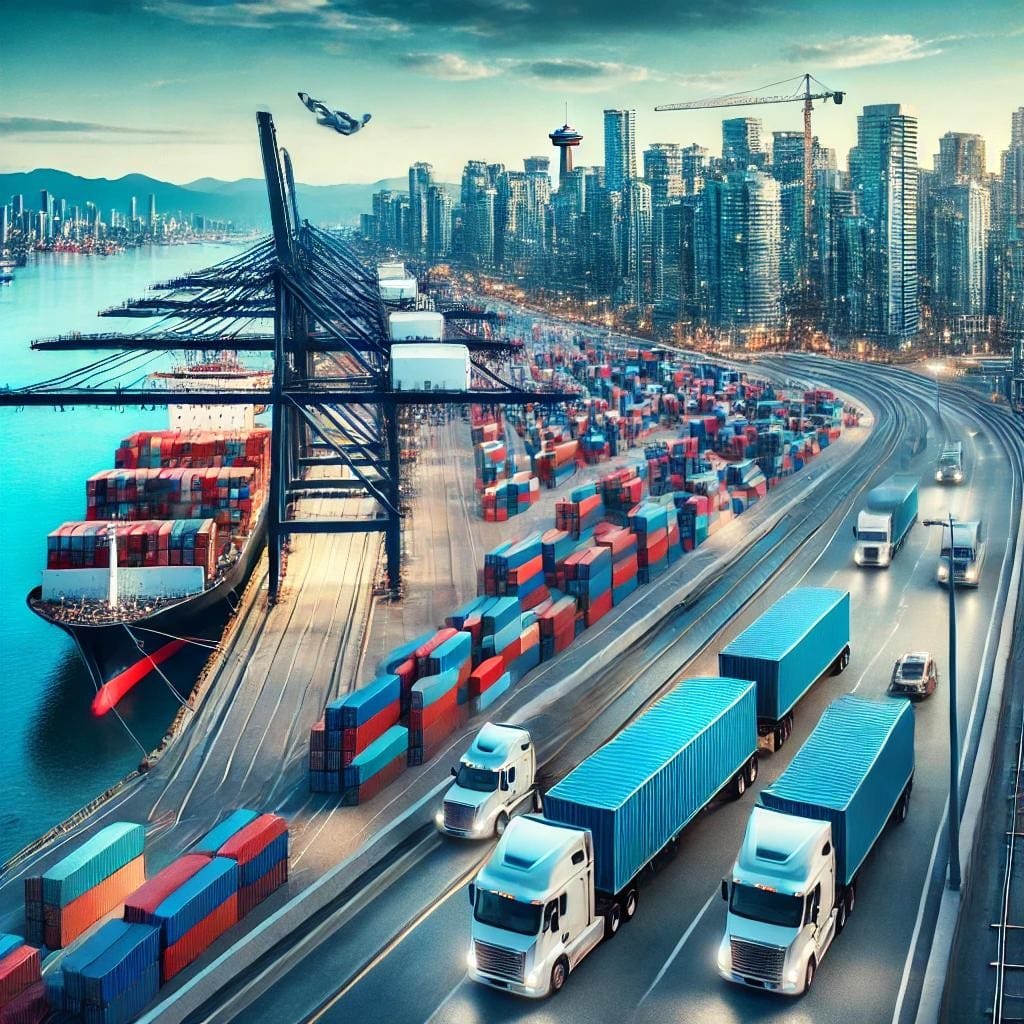Freight shipping is the backbone of modern commerce. From large-scale industrial shipments to everyday consumer goods, businesses rely on efficient transportation networks to keep supply chains running smoothly. As industries evolve and technology advances, freight shipping is poised for significant changes. These transformations will impact businesses, consumers, and the overall economy, making it essential to stay ahead of industry trends.
Rising Demand for Faster and More Efficient Freight Shipping
Global trade is expanding, and so is the demand for quicker delivery times. Businesses expect shipments to move faster, and consumers have grown accustomed to rapid order fulfillment. This shift puts pressure on freight shipping in Vancouver to become more efficient while maintaining reliability.
Companies are investing in automation, digital tracking, and optimized route planning to meet growing expectations. Smart logistics solutions are helping businesses minimize delays and streamline deliveries, ensuring that cargo arrives on time. As the demand for faster shipping increases, couriers and logistics providers must adapt by embracing new technologies and refining operational strategies.
Technology’s Role in Revolutionizing Freight Logistics
Advancements in technology are reshaping how shipments are managed and transported. Real-time tracking, artificial intelligence, and automated warehouses are transforming freight shipping, making it more precise and predictable.
GPS tracking systems now allow businesses and customers to monitor shipments at every stage. Artificial intelligence helps predict delays and suggests alternative routes, reducing downtime and enhancing efficiency. Additionally, automated warehouses are speeding up the packing and dispatching process, ensuring that freight moves seamlessly from one point to another. As technology continues to evolve, the logistics industry will become even more reliable and responsive.
Sustainability and the Push for Green Freight Solutions
The growing emphasis on sustainability is driving changes in freight shipping in Vancouver. Businesses are becoming more conscious of their carbon footprint, and logistics providers are under pressure to adopt greener practices. This shift is leading to the rise of eco-friendly transportation solutions.
Electric and hybrid freight vehicles are becoming more common, helping reduce emissions in urban areas. Additionally, optimized route planning minimizes fuel consumption, cutting costs while benefiting the environment. Companies are also exploring sustainable packaging and energy-efficient warehouses to further reduce their environmental impact. As eco-friendly initiatives gain traction, the freight industry will continue moving toward greener, more responsible practices.
E-Commerce Growth and Its Impact on Freight Shipping
Online shopping has changed the way goods move across cities and countries. With e-commerce booming, freight shipping is adapting to handle the increasing volume of small and large shipments. Consumers expect quick delivery, which requires efficient logistics networks to process and transport orders without delays.
Freight companies are investing in regional distribution centers to speed up last-mile deliveries. Warehouses closer to urban areas help reduce delivery times, improving customer satisfaction. Additionally, the growing demand for same-day and next-day shipping is pushing freight providers to develop new strategies for handling high-order volumes efficiently. The intersection of e-commerce and freight logistics will continue shaping the industry in the coming years.
Challenges Facing The Future of Freight Shipping
While the future looks promising, freight shipping in Vancouver faces challenges that need innovative solutions. Rising fuel costs, labor shortages, and fluctuating global trade policies create uncertainties that businesses must navigate. Addressing these issues requires adaptability and long-term planning.
Companies are working to reduce reliance on traditional fuel sources by investing in electric and autonomous freight vehicles. The shortage of skilled workers is being addressed through training programs and automation. Meanwhile, businesses are diversifying supply chains to mitigate the impact of trade disruptions. By tackling these challenges head-on, the freight industry can remain resilient and continue to grow.
How Businesses Can Prepare for the Future of Freight Shipping
Adapting to changes in freight shippingis essential for businesses that depend on reliable logistics. Companies can prepare by embracing technology, optimizing supply chain strategies, and prioritizing sustainability.
Investing in digital tracking and automated solutions helps businesses gain better visibility over their shipments. Establishing relationships with flexible logistics partners ensures that deliveries remain efficient, even during disruptions. Additionally, adopting eco-friendly practices not only benefits the environment but also appeals to environmentally conscious consumers. By staying proactive, businesses can successfully navigate the evolving freight landscape.
Embracing the Future of Freight Shipping with Confidence
The future of freight shipping in Vancouver is marked by technological advancements, increased efficiency, and a growing commitment to sustainability. As industries shift and consumer expectations rise, the freight sector must continue evolving to meet new challenges. Businesses that embrace change and invest in innovative logistics solutions will stay ahead in this fast-moving industry. For secure, reliable, and forward-thinking freight solutions, Numode Delivery Solutions is a trusted choice.

